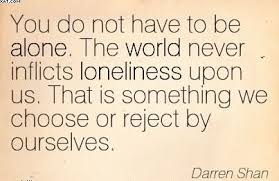This year also represents the 10th
anniversary of my Parkinson’s diagnosis. I am now a decade into this strange “season”
of living. Time for a look back at the most meaningful lessons I have learned
(limiting the number to the top five).
Perhaps the most profound thing I have learned over
the past 10 years has been to recognize the truth found in the words of the
song, “Turn, Turn, Turn”, written (actually borrowed from the Book of
Ecclesiastes in the Old Testament) by Pete Seeger, this song was first
performed when I was 10 years old, and was subsequently performed by dozens of
major artists and groups. You may remember the opening line to this timeless
and classic hit: “To everything
there is a season, and a time to every purpose under the heaven”. It reminds me that the one
constancy of life is change. It is unpredictable. Life has its seasons. And, of
course, the onset and progression of PD is neither predictable nor
controllable. Change is inevitable as the seasons, and we must adapt with each
change.
That leads
to my second revelation. While one cannot control whether one gets PD, each of
us who do have control over how we respond to that diagnosis. Whatever our
circumstances, and I don’t pretend that they are exactly the same for any of us,
we each have to choose what we do in response to the diagnosis received. The
array of choices can be overwhelming. But even to refuse or fail to make the
decision is a choice. Choose we must.
The third
conclusion I have reached in my decade with this rather insistent partner
called Parkinson’s is that the most important thing I choose is my attitude. PD
is more than the sum total of its symptoms and causes. It is a battle for
control over one’s attitude. We can remain positive, solution-oriented,
determined and purpose-driven. Or you can choose negativity, self-interest,
withdrawal and purposelessness. This choice is left up to you and me, to be
exercised every day, perhaps multiple times each day. It is likely our most
important legacy to those who watch our journey.
The fourth
of my top five lessons learned is something I tried to teach my children. “Falling
is part of learning”, I often assured them whether they were trying to learn to
ski, ride a bicycle or achieve some success or goal. It is not how many times
we fall, or fail, it is how many times we get back up and try again. PD is challenging,
there can be no doubt. It may literally mean falling, shaking, or not moving at
all. But whatever it is, it will require discipline and perseverance in order
to deny PD the victory.
The fifth,
and final (at least for this blog entry), lesson that I have learned in the
past 10 years is the danger of facing this ever-demanding opponent alone. I
understand the tendency to withdraw from others when you feel conspicuous, clumsy,
embarrassed and intimidated due to tremors or other uncontrollable physical
symptoms, but accepting oneself, PD symptoms at all, is a critical need for all
of us. This means we have to be ready to talk about it, even if we are not
inclined to discuss the dreaded disease. Most people will not bring it up
unless we create the environment or opportunity to do so. The more people
understand, the better it is for all of us. The idea of “independence” for any
of us, whether we have PD are not, is often illusory. We are all part of a community,
and the best way to live in community is to recognize our interdependence, our
need for each of us to understand that we are better together
.
These five
lessons are not about surviving PD, but rather thriving despite, or maybe
because, of the disease. Let’s chat further at WPC 2016, September 20-23, 2016.
There are lots of lessons to be learned there. You won’t regret making it a
priority.




Well said my friend! I admire your courage and inner strength and reminding us all that we all possess the same.
ReplyDeleteYvonne